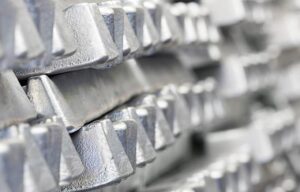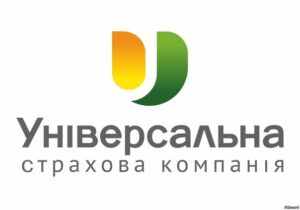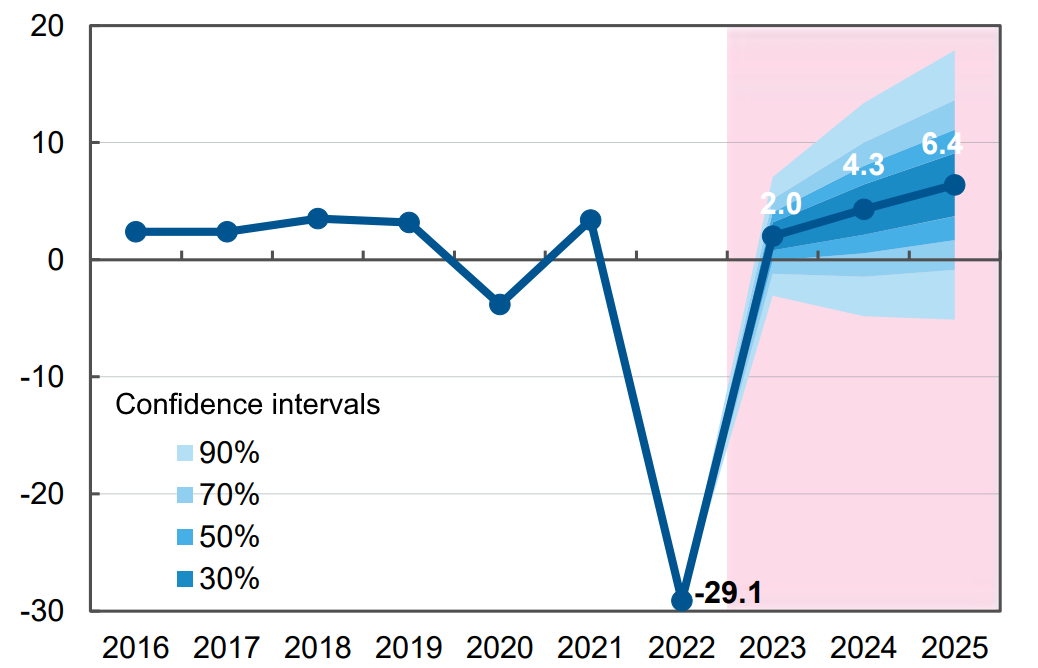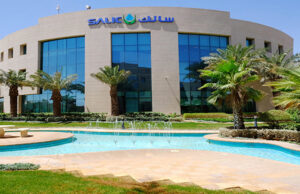
Ukrainian enterprises in January-August this year increased imports of aluminum and aluminum products – by 20%, up to $292.701 million (in August – $42.649 million).
Exports of aluminum and aluminum products for the first eight months of 2024 increased by 31.1% compared to the comparable period a year earlier – to $82.966 million (in August – $11.901 million).
Ukraine’s imports of aluminum and aluminum products in 2023 increased by 7.7% to $366.463 million, while exports of aluminum and aluminum products in 2023 increased by 0.7% compared to 2022 to $97.616 million.

There will be more warm days than cold ones in the fall, said Natalia Ptukha, a spokeswoman for the Ukrainian Hydrometeorological Center.
“For September and October, the average monthly temperature is expected to be two to three degrees higher than the climatic norm. In November, we will be closer to the climatic norm. In September, we have a precipitation deficit. In October, we are closer to the norm and, in principle, we also expect that in November we should be leveling off,” she said at a briefing on Wednesday.
Ptukha noted that for the meteorological autumn to begin, the average daily temperature in a particular region should not rise above 15° for several days. Currently, higher temperatures and a lack of precipitation are recorded in almost all regions of the country, indicating that the meteorological summer is continuing in Ukraine.
The spokesperson for the Ukrainian Hydrometeorological Center emphasized that in recent years, it has become particularly noticeable that there are more “periods of heat” than “periods of cold”.
“From year to year, any season in our country becomes quite warm. There are fewer and fewer periods with cold days, and they are becoming shorter, not as long and not as intense,” she said.
According to her, it is too early to talk about the upcoming winter. Although it is already clear that there will be fewer “cold periods” and they will not be as severe, Ukrainians should still be prepared for any weather manifestations.
“Of course, we cannot say that we will no longer have cold periods and frosts in winter. No, we don’t say that, because our country is located in such a way that we have seasonality. Of course, there will be winter in some of its manifestations, but still, based on the trends that are now in place, it will be milder more often,” Ptukha said.

In January-June 2024, Universalna Insurance Company (Kyiv) collected a little more than UAH 1 billion in net insurance premiums, which is 20.6% more than in the same period in 2023, gross premiums showed an increase of 22.2% to UAH 1.2 billion, according to the website of the Standard Rating agency.
The agency has updated the credit rating/financial strength (reliability) rating of Universalna Insurance Company at uaAAA on the national scale based on the analysis of its performance for the specified period.
According to the published data, revenues from individuals increased by 23.69% to UAH 533.021 million, and from reinsurers – by 8.91 times (by UAH 6.627 million) to UAH 7.465 million.
Despite a significant increase in premiums from individuals, legal entities prevailed in the company’s client portfolio in the first half of 2024.
Insurance payments sent to reinsurers in the first half of 2024 increased by 67.43% compared to the same period in 2023 to UAH 55.1 million, the reinsurer participation ratio in insurance premiums increased by 1.24 percentage points to 4.59%.
The volume of insurance claims paid by the company increased by 46.36% to UAH 422.204 million, while the claims ratio increased by 5.82 percentage points to 35.18%.
In the first six months of 2024, compared to the same period in 2023, the insurer’s operating profit increased by 3.16 times to UAH 120.391 million, and net profit by 2.06 times to UAH 126.707 million.
As of July 1, 2024, the company’s assets increased by 14.16% to UAH 1.680 billion, equity increased by 17.11% to UAH 867.087 million, liabilities increased by 11.17% to UAH 812.56 million, cash and cash equivalents increased by 54.41% to UAH 266.432 million.
As of the said date, the insurer’s equity exceeded its liabilities by 6.71%. The current financial investment portfolio of UAH 1.121 billion consisted of bank deposits (UAH 748.698 million) and domestic government bonds (UAH 373.213 million), which covered 32.79% of the company’s liabilities.
Universalna has an international shareholder base, with the European Bank for Reconstruction and Development holding 30% of the shares and Fairfax Financial Holdings Limited 70%.
Fairfax Financial Holdings Limited (Canada) is a holding company that, through its subsidiaries, is primarily engaged in accident insurance, property insurance and investment management.

As of September 18, farmers in all regions of Ukraine planted 1.0487 million hectares of winter crops, up from 639.9 thousand hectares last week, the press service of the Ministry of Agrarian Policy and Food reports.
According to the report, winter wheat was sown on 340.3 thousand hectares (101.1 thousand hectares a week earlier), barley – on 16.5 thousand hectares (3.7 thousand hectares), rye – on 3.4 thousand hectares (0.4 thousand hectares), and rapeseed – on 688.4 thousand hectares (534.7 thousand hectares).
According to the Ministry, winter wheat is being sown in 18 regions, barley in 12, and rye in six. Winter rape is being sown in 18 regions of Ukraine. Farmers in Volyn, Rivne, Ternopil, and Lviv regions have finished sowing it.
As of the same date a year earlier, Ukraine sowed 1.584 mln ha of winter crops, including 1 mln ha of rapeseed, 514 thou ha of wheat, 47 thou ha of barley, and 24 thou ha of rye.
Forecast of dynamics of changes in Ukrainian GDP in % for 2022-2025 in relation to previous period

Open4Business.com.ua

The Saudi Arabian Investment Company for Agriculture and Livestock (SALIC) has concentrated 12.6% of all outstanding shares of MHP, Ukraine’s largest chicken producer.
“SALIC, a wholly owned subsidiary of the Public Investment Fund of the Kingdom of Saudi Arabia (KSA), has acquired 13,514,563 GDRs of MHP SE, the parent company of MHP,” the Ukrainian agricultural holding said in a stock exchange announcement.
MHP’s share price on the London Stock Exchange is about $4 per share.
Salic was founded in 2012, in Ukraine the company already controls the agricultural holding Continental Farmers Group with a land bank of about 195 thousand hectares.
MHP is one of the largest agricultural holdings in Ukraine, which has been actively developing outside the country in recent years. Its Ukrainian land bank is about 370 thousand hectares.
In the first half of 2024, the company reduced its net profit by 33% to $45 million, due to foreign exchange losses of $81 million compared to $5 million in the first half of 2023. EBITDA increased by 20% to $280 million on a 4% decrease in revenue to $1.489 billion, thanks to crop production.
MHP’s founder, majority shareholder and Chairman of the Board is Ukrainian businessman Yuriy Kosyuk.